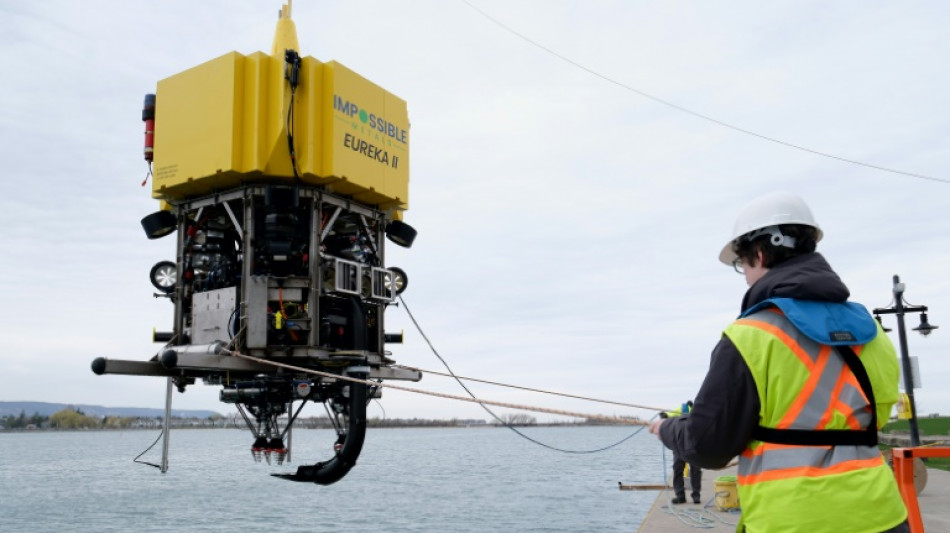
-
 Malaysia tycoon pleads guilty in Singapore to abetting obstruction of justice
Malaysia tycoon pleads guilty in Singapore to abetting obstruction of justice
-
England face searching Ashes questions after India series thriller

-
 Zverev to meet Khachanov in ATP Toronto semi-finals
Zverev to meet Khachanov in ATP Toronto semi-finals
-
Swiss 'Mountain Tinder' sparks high-altitude attraction

-
 Hong Kong hit by flooding after flurry of rainstorm warnings
Hong Kong hit by flooding after flurry of rainstorm warnings
-
Asian markets track Wall St rally on Fed rate cut bets

-
 Gaza war deepens Israel's divides
Gaza war deepens Israel's divides
-
Beijing lifts rain alert after evacuating over 80,000
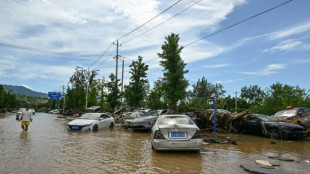
-
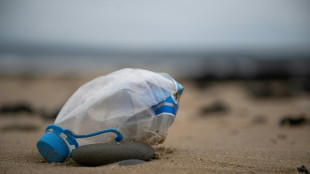 Decision time as plastic pollution treaty talks begin
Decision time as plastic pollution treaty talks begin
-
Zverev ignores fan distraction to advance to ATP Toronto semis

-
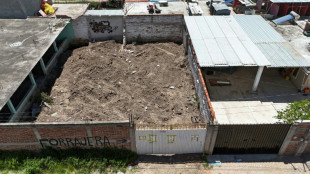 Remains of 32 people found in Mexico's Guanajuato state
Remains of 32 people found in Mexico's Guanajuato state
-
Trump tariffs don't spare his fans in EU
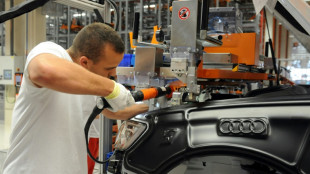
-
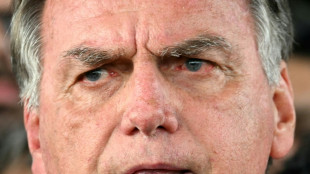 Brazil judge puts ex-president Bolsonaro under house arrest
Brazil judge puts ex-president Bolsonaro under house arrest
-
With six months to go, Winter Games organisers say they'll be ready

-
 Rybakina to face teen Mboko in WTA Canadian Open semis
Rybakina to face teen Mboko in WTA Canadian Open semis
-
Australia to buy 11 advanced warships from Japan
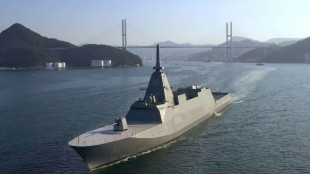
-
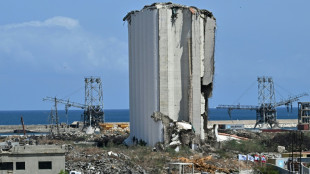 Five years after Beirut port blast, Lebanese demand justice
Five years after Beirut port blast, Lebanese demand justice
-
Stella Rimington, first woman to lead UK's MI5 dies at 90
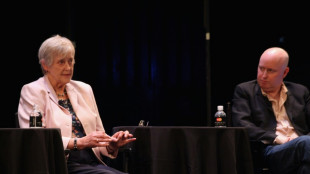
-
 Trump admin to reinstall Confederate statue toppled by protesters
Trump admin to reinstall Confederate statue toppled by protesters
-
Rybakina advances to WTA Canadian Open semis

-
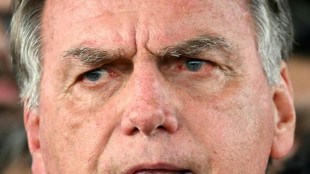 Brazilian judge places ex-president Bolsonaro under house arrest
Brazilian judge places ex-president Bolsonaro under house arrest
-
Brazil judge places ex-president Bolsonaro under house arrest
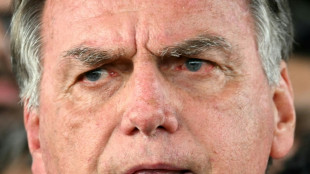
-
 NGOs caught between juntas and jihadists in turbulent Sahel
NGOs caught between juntas and jihadists in turbulent Sahel
-
NBA Spurs agree to four-year extension with Fox: reports

-
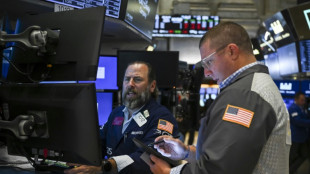 Stocks mostly rebound on US interest rate cut bets
Stocks mostly rebound on US interest rate cut bets
-
Boeing defense workers launch strike over contract dispute
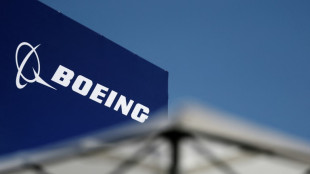
-
 Grand Canyon fire rages, one month on
Grand Canyon fire rages, one month on
-
Djokovic withdraws from ATP Cincinnati Masters
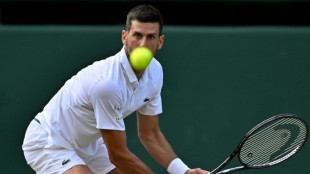
-
 Brazil's Paixao promises 'big things' at Marseille unveiling
Brazil's Paixao promises 'big things' at Marseille unveiling
-
Shubman Gill: India's elegant captain

-
 Trump says to name new labor statistics chief this week
Trump says to name new labor statistics chief this week
-
England v India: Three talking points

-
 Exceptional Nordic heatwave stumps tourists seeking shade
Exceptional Nordic heatwave stumps tourists seeking shade
-
'Musical cocoon': Polish mountain town hosts Chopin fest

-
 A 'Thinker' drowns in plastic garbage as UN treaty talks open
A 'Thinker' drowns in plastic garbage as UN treaty talks open
-
India's Siraj 'woke up believing' ahead of Test heroics

-
 Israeli PM says to brief army on Gaza war plan
Israeli PM says to brief army on Gaza war plan
-
Frustrated Stokes refuses to blame Brook for England collapse

-
 Moscow awaits 'important' Trump envoy visit before sanctions deadline
Moscow awaits 'important' Trump envoy visit before sanctions deadline
-
Schick extends Bayer Leverkusen contract until 2030

-
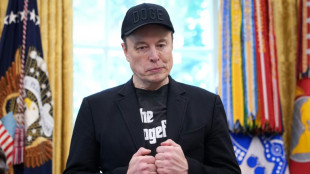 Tesla approves $29 bn in shares to Musk as court case rumbles on
Tesla approves $29 bn in shares to Musk as court case rumbles on
-
Stocks rebound on US rate cut bets
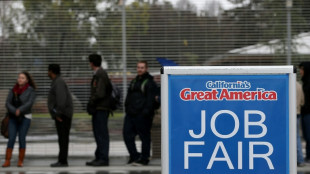
-
 Swiss eye 'more attractive' offer for Trump after tariff shock
Swiss eye 'more attractive' offer for Trump after tariff shock
-
Trump says will name new economics data official this week

-
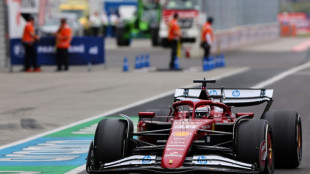 Three things we learned from the Hungarian Grand Prix
Three things we learned from the Hungarian Grand Prix
-
Lions hooker Sheehan banned over Lynagh incident

-
 Jordan sees tourism slump over Gaza war
Jordan sees tourism slump over Gaza war
-
China's Baidu to deploy robotaxis on rideshare app Lyft

-
 Israel wants world attention on hostages held in Gaza
Israel wants world attention on hostages held in Gaza
-
Pacific algae invade Algeria beaches, pushing humans and fish away
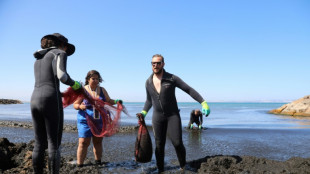
| RBGPF | 0% | 74.94 | $ | |
| VOD | 0.72% | 11.04 | $ | |
| CMSC | 0.87% | 23.07 | $ | |
| NGG | 1.14% | 72.65 | $ | |
| GSK | 0.32% | 37.68 | $ | |
| BTI | 2.16% | 55.55 | $ | |
| RYCEF | 2.14% | 14.5 | $ | |
| BP | 2.28% | 32.49 | $ | |
| AZN | 0.86% | 74.59 | $ | |
| RELX | 0.73% | 51.97 | $ | |
| SCU | 0% | 12.72 | $ | |
| RIO | 0.58% | 60 | $ | |
| CMSD | 1.18% | 23.63 | $ | |
| BCC | -0.77% | 82.71 | $ | |
| BCE | -1.12% | 23.31 | $ | |
| SCS | 38.6% | 16.58 | $ | |
| JRI | 0.76% | 13.2 | $ |

In Canada lake, robot learns to mine without disrupting marine life
Three robotic arms extended under the water in a Canadian lake, delicately selecting pebbles from the bed, before storing them back inside the machine.
The exercise was part of a series of tests the robot was undergoing before planned deployment in the ocean, where its operators hope the machine can transform the search for the world's most sought-after metals.
The robot was made by Impossible Metals, a company founded in California in 2020, which says it is trying to develop technology that allows the seabed to be harvested with limited ecological disruption.
Conventional underwater harvesting involves scooping up huge amounts of material in search of potato-sized things called poly-metallic nodules.
These nodules contain nickel, copper, cobalt, or other metals needed for electric vehicle batteries, among other key products.
Impossible Metals' co-founder Jason Gillham told AFP his company's robot looks for the nodules "in a selective way."
The prototype, being tested in the province of Ontario, remains stationary in the water, hovering over the lake bottom.
In a lab, company staff monitor the yellow robot on screens, using what looks like a video game console to direct its movements.
Using lights, cameras and artificial intelligence, the robot tries to identify the sought-after nodules while leaving aquatic life -- such as octopuses' eggs, coral, or sponges -- undisturbed.
- 'A bit like bulldozers' -
In a first for the nascent sector, Impossible Metals has requested a permit from US President Donald Trump to use its robot in American waters around Samoa, in the Pacific.
The company is hoping that its promise of limited ecological disruption will give it added appeal.
Competitors, like The Metals Company, use giant machines that roll along the seabed and suck up the nodules, a highly controversial technique.
Douglas McCauley, a marine biologist at the University of California, Santa Barbara, told AFP this method scoops up ocean floor using collectors or excavators, "a bit like bulldozers," he explained.
Everything is then brought up to ships, where the nodules are separated from waste, which is tossed back into the ocean.
This creates large plumes of sediment and toxins with a multitude of potential impacts, he said.
A less invasive approach, like that advocated by Impossible Metals, would reduce the risk of environmental damage, McCauley explained.
But he noted lighter-touch harvesting is not without risk.
The nodules themselves also harbor living organisms, and removing them even with a selective technique, involves destroying the habitat, he said.
Impossible Metals admits its technology cannot detect microscopic life, but the company claims to have a policy of leaving 60 percent of the nodules untouched.
McCauley is unconvinced, explaining "ecosystems in the deep ocean are especially fragile and sensitive."
"Life down there moves very slowly, so they reproduce very slowly, they grow very slowly."
Duncan Currie of the Deep Sea Conservation Coalition said it was impossible to assess the impact of any deep sea harvesting.
"We don't know enough yet either in terms of the biodiversity and the ecosystem down there," he told AFP.
According to the international scientific initiative Ocean Census, only 250,000 species are known, out of the two million that are estimated to populate the oceans.
- High demand -
Mining is "always going to have some impact," said Impossible Metals chief executive and co-founder Oliver Gunasekara, who has spent most of his career in the semiconductor field.
But, he added, "we need a lot more critical minerals, as we want to electrify everything."
Illustrating the global rush toward underwater mining, Impossible Metals has raised US$15 million from investors to build and test a first series of its Eureka 3 robot in 2026.
The commercial version will be the size of a shipping container and will expand from three to 16 arms, and its battery will grow from 14 to nearly 200 kilowatt-hours.
The robot will be fully autonomous and self-propel, without cables or tethers to the surface, and be equipped with sensors.
While awaiting the US green light, the company hopes to finalize its technology within two to three years, conduct ocean tests, build a fleet, and operate through partnerships elsewhere in the world.
C.AbuSway--SF-PST
